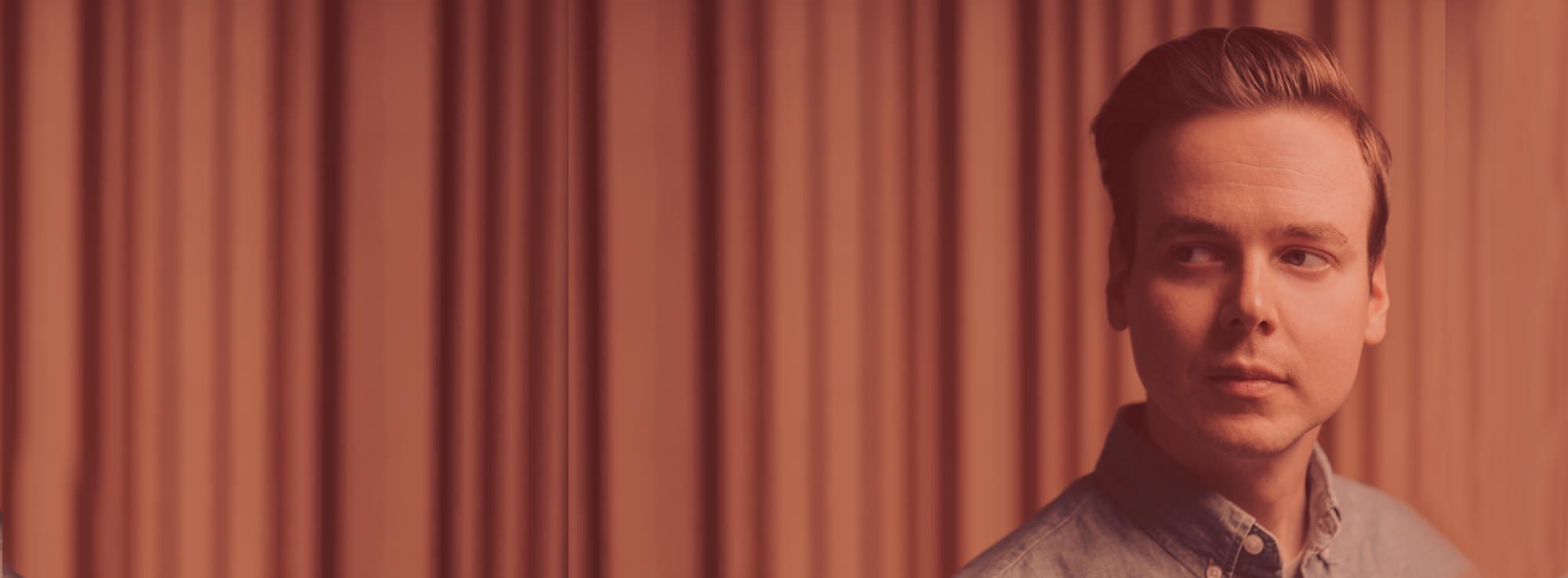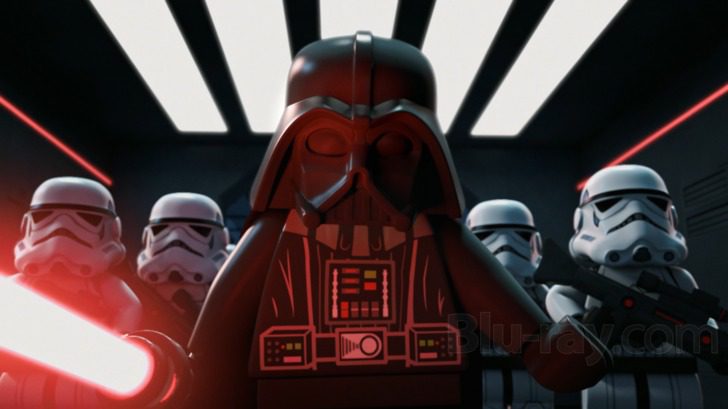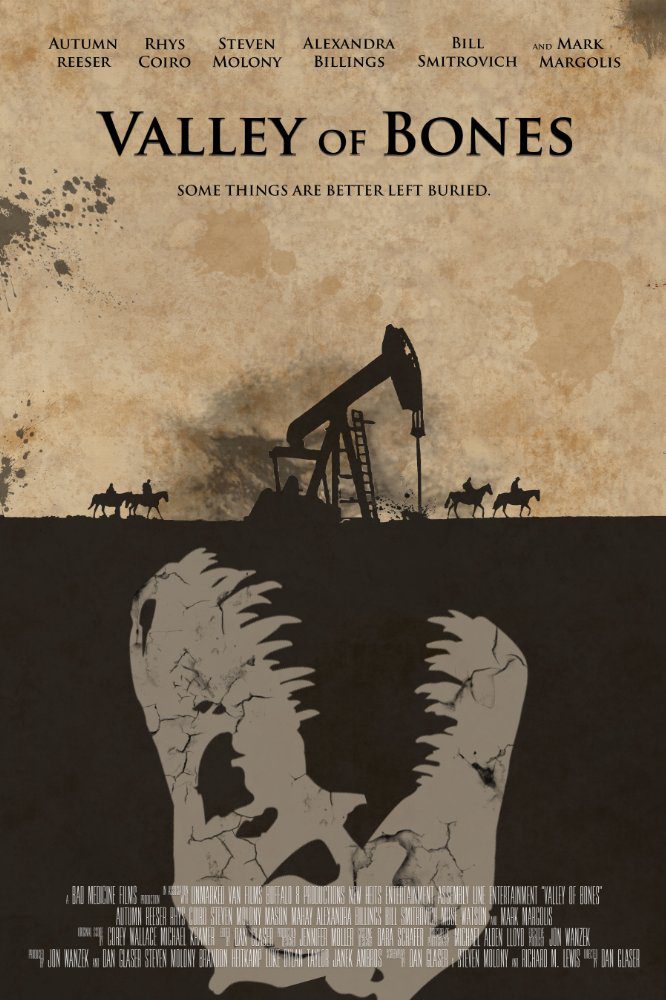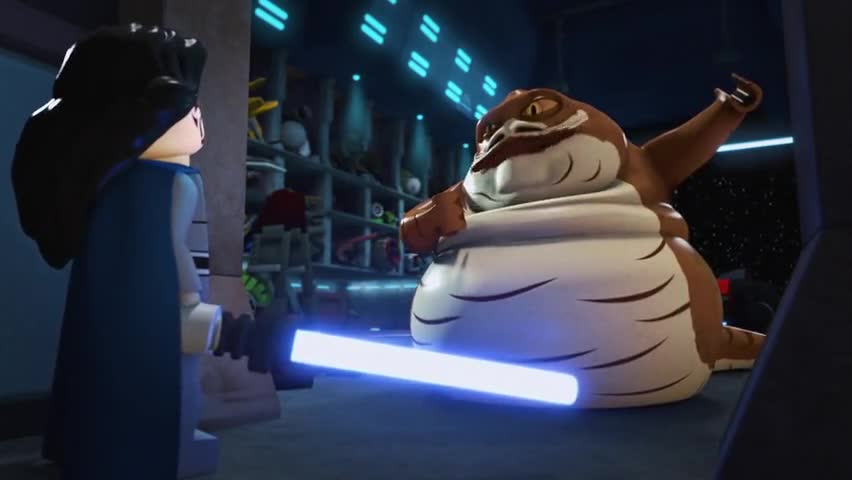I have always been a fan of musical composition. I cannot play an instrument or carry a tune in a bucket, but I greatly admire those who can and am fascinated by the process of how they bring their art to life. In that vein, I got to speak with Emmy nominated composer Michael Kramer about his work, his passion for music, standing in the shadow of John Williams’ iconic score and his creative process.
Michael Kramer is an award-winning composer and multi-instrumentalist for film, television, and video games. A graduate of USC’s prestigious film scoring program, he currently scores the hit Cartoon Network TV series LEGO Ninjago: Masters of Spinjitsu, for which he won a BMI TV Music Award in 2012 and was nominated for an Annie Award in 2015. Running for five seasons and counting and airing in over 27 countries, the action-packed animated series features a playful and imaginative score brought to life by live instruments from around the world, all of which Michael plays himself.
Other recent TV credits include the original HULU series Complete Works, CBS Sports’ Ball Up, and Sons of Tuscon on FOX. A seasoned composer for documentaries, Michael’s retro synth inspired score to Beaver Trilogy Part IV premiered at Sundance in 2015. Additional documentary scores include Gold Fever, Forgotten Miracle, and Bite Size; profiling childhood obesity and Best Documentary winner at Cinequest. On the big screen, Michael’s music can heard in recent releases Furious 7, Thor: The Dark World, and Teenage Mutant Ninja Turtles, on which he collaborated with Brian Tyler. His video game credits include Need For Speed: The Run, Assassin’s Creed: Black Flag, and Assassin’s Creed: Unity. He has scored commercial campaigns for companies like Office Depot, Motorola, LEGO, Pringles, NutriBullet, and the Air National Guard. In 2012, Michael turned his attention to the stage, winning an Ovation Award for Best Original Score for his work on the dance-theatre production Stations: A Los Angeles Holiday Story.
Deron Generally: What was your musical journey? What led you to becoming a composer?
Michael Kramer: Great question. For me the launching point, the first real inspiration for me was when I was ten and I saw Jurassic Park in the theater for the first time. It swept me off my feet and really instilled in me a love for film, for music and the power of those two things combined. Growing up I was always into music and I would start off on piano and then I migrated to guitar to impress girls in high school.
Deron Generally: (Laughs)
Michael Kramer: You know how it goes. As I got older I started taking it more seriously, but it wasn’t really until college that I started to get serious about composition. I went to Columbia College in Chicago.
Deron Generally: Oh. I’m from Chicago.
Michael Kramer: Where are you from?
Deron Generally: I’m from Chicago originally. The South Side.
Michael Kramer: I grew up in the burbs but I lived in the city for a while. Loved it. After Columbia, the next really defining moment was this great program called “Semester in L.A.” It’s really cool. A summer program through Columbia where you go out to L.A. and you learn the ins and outs of your profession. For a month and change you were just in it. No distractions. Just learning about your craft and absorb Hollywood. We had amazing teachers and we had this huge scoring session with an orchestra at the end and I was hooked. At the end I determined that this is I what I have to do.
Deron Generally: It sounds amazing.
Michael Kramer: Yeah. I made my way, eventually, to USC in their undergrad program which was amazing. Incredible teachers and the guys who were orchestrating and composing, who were actually doing it were the teachers in the program. It was really practical, really hands on and did amazing things for me. So that’s how I got out to L.A. and got my feet wet as it were.
Deron Generally: What do you find the most rewarding about musical composition? Is it the writing process? Is it finally hearing an orchestra playing it? At what point to do you go “That’s what I heard in my head.”?
Michael Kramer: You know, as funny as it sounds, I really like the beginning process. The brainstorming, trying to decide which music fits the character or situation. What kind of instruments. That’s the part of the process where I can kind of become a bit of a mad scientist and mix this with that and get something totally different than what I expected. It’s that experimental phase that is really unpredictable and exciting that I really love.
Deron Generally: That’s interesting and it leads me into a question I had about the process. What would you consider your process when you sit down to compose a song or a musical score?
Michael Kramer: The first thing is always story. What is this particular scene? What does this theme need? What is missing from the screen that the music needs to fill in emotionally or through subtext? From there it’s doing a big brainstorm of figuring out which instruments to experiment with. What kind of a theme is it? Is it a big, sweeping melody or is it just two chords for the bad guy and every time you hear those two chords that’s all you need to get the listeners attention and burn it into their brains. Or maybe it’s just the sounds. You pick up your music stand and get a cello bow and you bow the stand to get this freaky, high-pitched thing and that becomes your iconic sound or “theme”.
Deron Generally: Right.
Michael Kramer: Figuring out the structure is next and then it’s really just throwing spaghetti at the wall (Laughs). You just try and see what sticks. It’s a crazy process and sometimes you’re surprised by what comes out. It’s really fun because of that unpredictability.
Deron Generally: I always find that aspect fascinating because I’m not a composer, but I’ve always wondered about the overall process and how it works with the production. Do they show you the footage of something first and you decide how music would fit into that scene? Or is it along the lines of you read the script and craft the music’s emotional beats as you read it?
Michael Kramer: That’s a great question. People have different philosophies when they approach it. I think there’s merit to doing it both ways. Often times I’ll go into the project not seeing any footage and read the script to conceptualize something in my mind. Maybe I’ll write a suite of music so it’s just a collection of all the major themes and style. Kind of like a sketch. That’s really great to do away from picture. Sometimes looking at picture and composing right away can lead you astray in that if you start with just the central idea, the major concept musically and then adapt it to picture, it’s usually a better process than trying to adapt something from one scene and trying to work backwards to try and create something for the whole project. Does that make sense?
Deron Generally: It does because its sounds like when you read something, you’re allowed that more creative aspect. When you look at something, it’s like you have to bend the music to what you saw.
Michael Kramer: Yup. Exactly. Often times, I will write a suite for something and think that it’s fitting everything appropriately. I’ll do a quick music edit where I move things around and sometimes, nothing works and it’s back to the drawing board. Sometimes you just have to tweak things a little bit. I just always love to start from a place that’s pretty broad.
Deron Generally: Your work on Lego Star Wars: The Freemaker Adventures puts you into the musical world created by John Williams. You were speaking earlier about your interest being sparked by Jurassic Park and when I was in high school, I remember listening to that soundtrack almost daily.
Michael Kramer: (Laughs) My kind of guy.
Deron Generally: I love musical scores and John Williams has always been one of the architects of my childhood. From Sugarland Express and 1941 to every Star Wars soundtrack, I have all of his music. Which is why I was so excited to actually speak to a composer and ask these questions. With Williams iconic score in mind, how much of your musical voice is in the compositions for the series when you have those iconic themes kind of constantly looming?
Michael Kramer: That’s a really good question. There’s no doubt that John Williams casts a very long shadow (Laughs). But there is this balance where you have to make sure that you’re writing music that “sounds” like Star Wars, but also I’m not John Williams so I have to stay true to who I am as a composer. So there’s this dance of going back and forth and sometimes it’s really hard. I’ll write a scene and it sounds like me and I think it’s working for the scene, but it doesn’t sound like Star Wars so I have to go back to the drawing board.
I think that’s gotten a lot easier where I’ve naturally fallen into the groove of Star Wars music. It’s like merging onto oncoming traffic, you have to constantly move forward, but also be mindful of your surroundings at all times.
Deron Generally: With the return of The Freemaker Adventures, what can fans expect in the next season from a musical perspective? Will there be more dramatic moments or will the music stay light as the season progresses?
Michael Kramer: Without spoiling anything, I can tell you that season two is going to be exciting for a couple of reasons. One is that we get to do some really epic music related to Rowan and his storyline throughout the season. The other is the music we use for our villain. The music is really intense and scary at points. Almost like horror movie music at some points. So that’s been really fun. The producers and everyone at Lucasfilm have been really great in trusting me to go for it and not play down to the audience. Give the kids the benefit of the doubt and challenge them, musically speaking.
Deron Generally: That does sound good that they are just letting you sort of lean in to the music you want to create. Even with the looming shadow of John Williams, you have the advantage of using new characters so it wouldn’t make any sense for you to use “Luke and Leia’s” theme.
Michael Kramer: Exactly!
Deron Generally: So you have the ability to craft a theme for a new character. Was that something you get excited about during the process?
Michael Kramer: Oh yes. Whenever you get a chance to write really big, sweeping melodies, it’s a dream for a composer because not a lot of projects these days allow for that kind of scoring, but I love it. The great thing is that I get to write my own melodies for the new characters, but we still use John Williams’ themes when it’s appropriate like when a legacy character comes and sometimes it’s really fun when I get to blend those two things. So like in Episode 2 of season 1, when they’re trying to escape from Graballa, we break into the Force Theme and at the tail end of it, we put Rowan’s theme on top of it. Stuff like that is really fun to play with.
Deron Generally: Leaving Lego Star Wars, but staying in the same Lego world, what was the inspiration behind the music of Ninjago: Masters of Spinjitsu?
Michael Kramer: Well, it’s funny. My composing partner Jay (Vincent), when we got the brief it was pretty generic. It was “we just need Asian action music” , but the great thing about the show is, with Jay and I and our love of instruments from around the world, was that we were able to establish something that would help us build the musical world. For the heroes we’d use wind instruments and for the bad guys we’d use bowed instruments. Because there’s more friction with the bowed instruments, it fits the villains better that way.
We’d pull from instruments from all over the world. So we would have tubas from India, samisen and shakuhachi flutes from Japan, all of these different things. For me, it’s been so fun to bring in new instruments and I always try buy one and learn how to play it. Over the past six or seven years, I’ve been able to learn all these different instruments as I’ve grown with the show. That’s been an incredible experience for me as a composer.
Deron Generally: That perfectly leads me into my next question. How has the music for the series progressed as the storylines have changed over the years?
Michael Kramer: The really fun thing about Ninjago is they are never complacent. Each season is something new which means we get thrown a curve ball each new season to do something different. Which is great because it never gets old. I think if we kept with the same style season after season, it would get boring. The storylines are always being pushed, always evolving and the music has to keep up with it.
Deron Generally: You have a new film that you scored titled Valley of Bones. What was your experience composing for the film and what kind of emotion are you hoping to elicit from the audience when you score a film?
Michael Kramer: One of the things that’s important to me as a composer is to balance my career out between animation and live action, drama and documentaries as well. For me one informs the other. With animation, it’s really helped hone my theme writing muscle. Live action/documentary helps remind me that subtlety is really important. It pushes me to stay fresh and not drift too far into cartoon music, if that makes sense. I’m always trying to push the envelope musically by finding new influences and keeping it fresh. My hope is that my music for animation doesn’t really sound like music for animation. That it sounds like something from an action film.
Deron Generally: Are there any other upcoming projects that you would like to discuss this evening?
Michael Kramer: We are in the middle of season two of Lego Star Wars: The Freemaker Adventures. We’re in the thick of it. We finished working on the new season of Ninjago. I don’t know the release date yet, but it should be coming out soon.
Deron Generally: I’ll ask my ten year old son. He’ll probably know.
Michael Kramer: (Laugh) Probably. What’s his favorite character?
Deron Generally: Well his favorite color is green, so I’m going to say the Green one.
Michael Kramer: Lloyd. (Laughs)
Deron Generally: Yeah. He loves it.
Deron Generally: We’ve talked about the process, but what are some of the challenges in recording?
Michael Kramer: What was a really amazing and challenging experience was getting to work with a live orchestra for this season of Lego Star Wars: The Freemaker Adventures. In this season we went overseas to Eastern Europe and got to record with an 80 piece orchestra and we did five sessions over there. We recorded over two hours of live music. That was an incredible experience. I really learned a lot and it was really demanding. Doing a TV show and just writing music is one thing. Trying to orchestrate it, record it, edit it and get it mixed can be pretty brutal. It was a great boot camp for me.
Deron Generally: So what do you learn with each new experience?
Michael Kramer: I would say as the years go by that I learn how much I don’t know (Laughs), but in a really good way. Each time I come back to the music making process it’s with humility for sure. Looking back I can say I really didn’t know what I was doing that first time. One of the reasons I love this job is that it is so multifaceted. I can’t think of any other jobs where you’re just wearing so many different hats.
You play psychologist with the director when you’re figuring out spotting notes. You’re playing technologist when you’re setting up your computer rigs with an insane amount of technical details. You’re playing politician sometimes when you have multiple parties involved. Making sure everyone’s on the same page. Working with Lucasfilm and Lego has been great but they’re two big companies and sometimes there are differing ideas in there. It’s learning how to thread the needle and find that common ground. There are so many different aspects of the job that you never feel like you’ve mastered anything for better or for worse. You always feel like you’re thrown in the deep end.
I love that. It keeps it fresh. It keeps it exciting.
Deron Generally: It sounds like it. It definitely sounds like the challenge has a hand in shaping the final product and you end up pulling out more than what you thought you had. It’s interesting to hear about the art vs commerce aspects of the job. That you need to be true to your art, but also be cognizant of the fact that this is their business. It does sound challenging to have to thread that needle of the creative aspect while also delivering, in essence, a product.
Michael Kramer: Right. Sometimes its something like not having enough money in the budget and you’re screaming “Why can’t I have eight trumpets!!?” (Laughs). It’s for my art.
Deron Generally: That is funny. Something I’ve always admired about composers is that even when you know the name of the composer or have a sense of the kind of music that they do, they never advertise really. They never really go out and tell everyone “Listen to the music I made for this thing.” I’ve always found a level of nobility in that. To sacrifice ones ego for the sake of the art itself.
Michael Kramer: That’s really well put and to be honest with you, in the beginning that was really hard to do. Early in my career, when I got notes back, it was ego bruising. It still happens from time to time, but I think I’ve gotten a lot better at it. Having a more objective view about how and what I’m doing really helps.
Deron Generally: I really appreciate your taking the time to speak to me this evening. I enjoyed it. What’s next for you?
Michael Kramer: I’m actually going to be at Star Wars Celebration 2017 in Orlando this week. I’m going to be speaking at an 11:00 am panel. It’s going to be me, Bill Motz and Bob Roth (creators of the series) and we’re going to be giving a preview of season two. Probably show some artwork, play some music and have some fun.
Deron Generally: Well I will definitely be reporting on it. Have fun in Orlando.
Michael Kramer: I appreciate that and I will. It was great talking with you.
Deron Generally: Same here.










